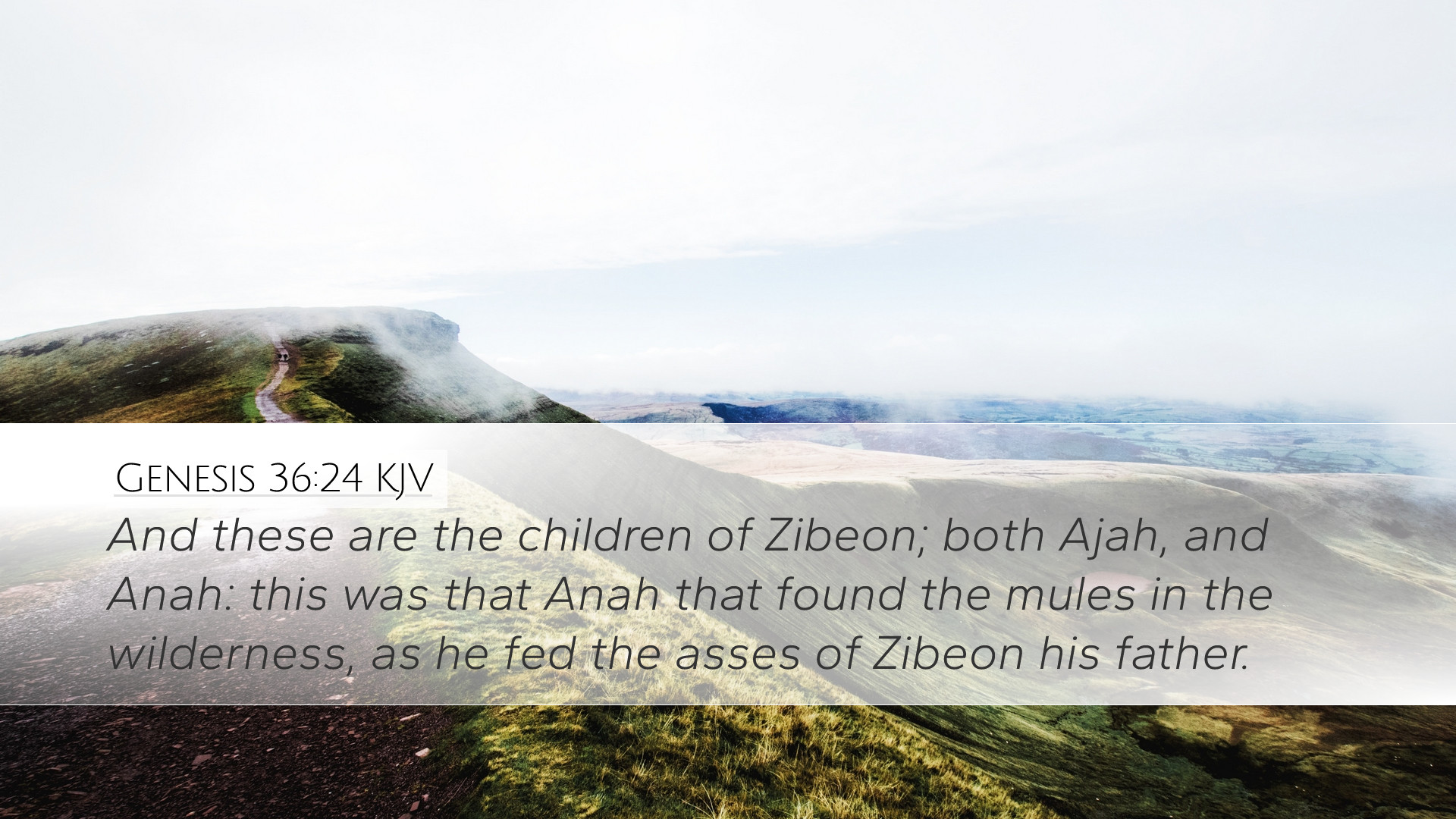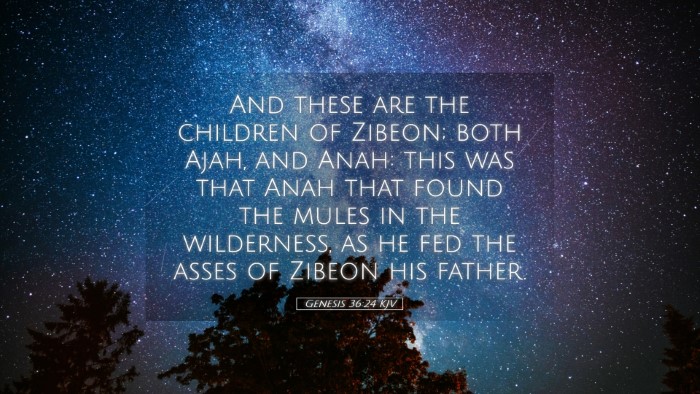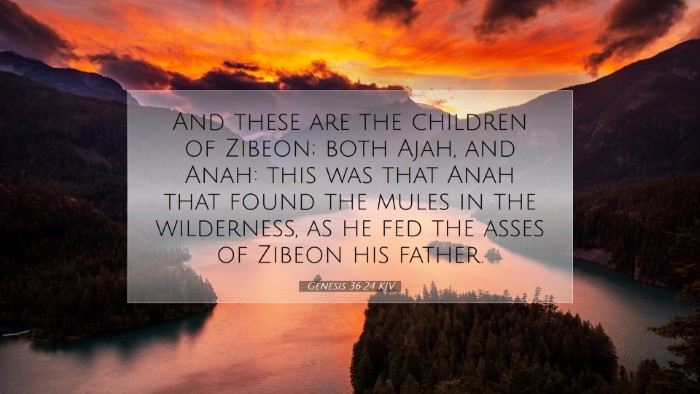Commentary on Genesis 36:24
Verse: “And these are the children of Zibeon; both Ajah and Anah: this was that Anah that found the mules in the wilderness, as he fed the asses of Zibeon his father.” (Genesis 36:24 KJV)
Introduction
The genealogical records found in Genesis 36 are significant in tracing the descendants of Esau and their various clans. This particular verse speaks about Zibeon, his children, and the notable actions of Anah. Such passages may seem mundane at first glance, but they often contain insights into the characters and histories pertinent to the broader narrative of the Bible.
Contextual Analysis
To grasp the full essence of Genesis 36:24, we must first understand the context within which it is set. This chapter primarily details the lineage of Esau (Edom), reflecting God's promises and the unfolding of His covenant through the subsequent generations.
Historical Background
The Edomites, descendants of Esau, played a crucial role in biblical history. By cataloging the descendants and clan leaders, the text not only preserves their legacy but also implicitly highlights the complexities of sibling rivalries and divine providences.
Commentary from Notable Scholars
Matthew Henry
Henry notes that the mention of Anah marks a distinctive point in the genealogical record, particularly as he is identified with a notable accomplishment—finding mules in the wilderness. This detail, while seemingly trivial, emphasizes the resourcefulness and occupational roles that were vital in the ancient Near Eastern context. According to Henry, the discovery by Anah symbolizes God's providential care, as it not only benefits the family but also enhances their status.
Albert Barnes
Barnes highlights that Anah's discovery of the mules is metaphorically significant. In the arid wilderness of Edom, such a discovery would have immense value, indicating prosperity amidst hardship. Barnes suggests that this moment reflects God's blessings upon Esau's lineage and serves as a reminder of divine favor despite the tumultuous history involving Jacob and Esau.
Adam Clarke
Clarke points out that the “finding of mules” is a unique narrative point that provides insight into Anah's character—showing him as someone who is diligent and observant. Clarke interprets the mention of mules as a sign of wealth and responsibility, elaborating that Anah's contribution signifies not just a personal achievement but also a foundational aspect of the societal structure of Edom. His role as a caretaker of Zibeon’s livestock suggests a broader theme of stewardship prevalent throughout Scripture.
Thematic Considerations
Genesis 36:24 opens discussions about various themes, such as:
- Familial Legacy: This genealogy underscores the importance of family heritage in biblical times, reflecting a commitment to preserving one's lineage.
- Divine Providence: The discovery of mules can be seen as a metaphor for God's ongoing guidance and sustenance in the lives of His people.
- Occupational Significance: The roles mentioned here show how one’s occupation intertwines with identity and God’s blessings multi-dimensionally.
Practical Applications for Today’s Believers
For pastors and theologians, this verse offers profound implications for preaching and teaching:
- Emphasizing Heritage: The importance of one's spiritual and familial ancestry as part of God’s redemptive plan can be a rich topic for sermons.
- Recognizing God’s hand in daily life: Anah’s mundane discovery serves as a reminder to see God's provision in the ordinary aspects of life.
- Encouraging Stewardship: Anah’s role encourages believers to embrace diligence and stewardship in various aspects of life, both that which they are directly responsible for and for their communities.
Conclusion
In summary, Genesis 36:24 is more than a mere genealogical record; it is a window into the life and times of those who followed the patriarchs. Through the insights of respected theologians, we can appreciate how seemingly simple statements carry significant meaning and implications. This verse showcases God’s providential care and the importance of personal and family legacy within the unfolding story of redemption.


